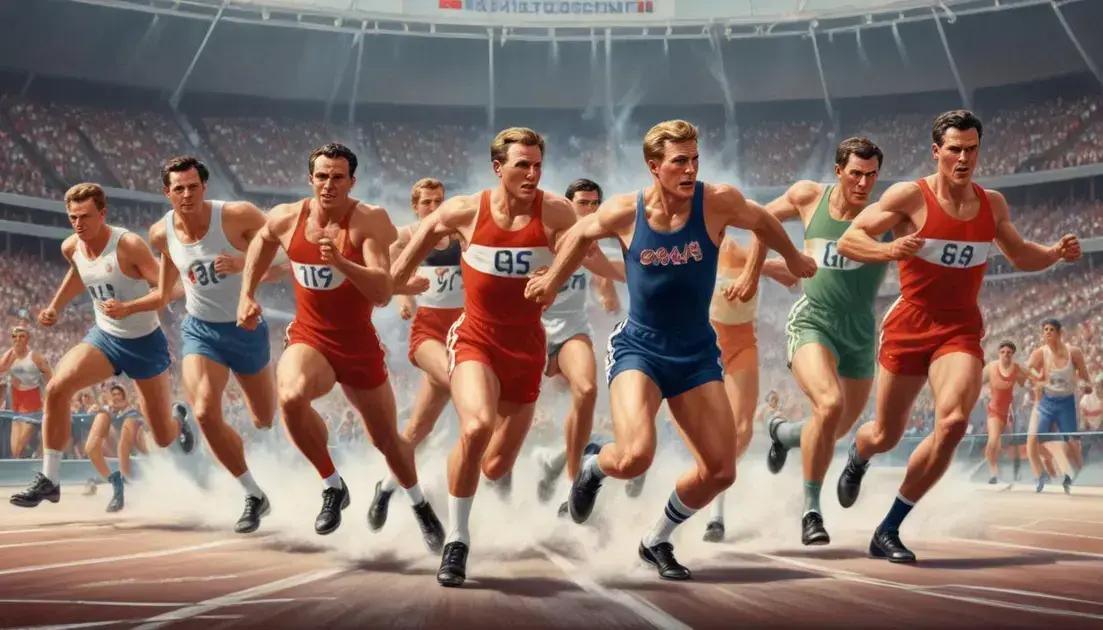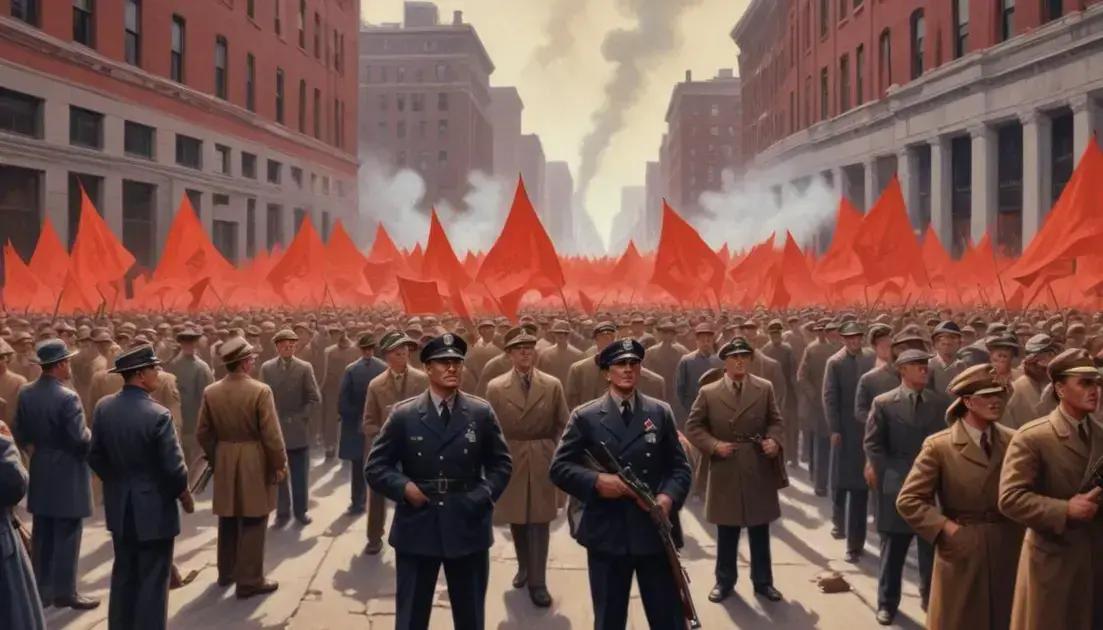
Olympics: The Sports Battlefield Between USA and USSR
The Olympics serve as a global stage where sports, politics, and culture intersect. They highlight powerful rivalries between countries, showcasing athletic prowess while also reflecting ideological struggles, especially during events like the Cold War. Cultural exchanges thrive as athletes from diverse backgrounds come together, sharing their traditions and fostering friendships. Historical boycotts demonstrate how political tensions influence participation, further intertwining sports with world affairs. Overall, the legacy of the Olympics encompasses not only competition but also the celebration of unity and diversity on an international level.
The Olympics have always been more than just games; they serve as a powerful stage for geopolitical showdowns. From boycotts to symbolic rivalries, the stakes in these competitions often reflect broader ideological battles. Curious about how sports became a reflection of international tensions? Let’s dive in!
The ideological significance of the Olympics
The Olympics have long been a stage for more than just athletic achievement. They represent national pride and ideology. Every event showcases not just sport, but also cultural identity and political agendas. Countries use the games to display their strength and values.
For instance, during the Cold War, the Olympics became a direct battleground between the USA and USSR. Athletes were not just competing for medals; they were symbols of their nations. Successes or failures could impact public perception and international standing.
The Role of Propaganda
Governments often used the Olympics as a tool for propaganda. They highlighted athletic victories to promote their systems. The athletes became heroes, celebrated for more than their sports skills. They embodied the ideals of their nations and represented the hopes of their people.
Boicots and Statements
Boycotts have also played a significant role. Countries have withdrawn from the games to protest actions they view as unjust. For example, the 1980 Moscow Olympics saw a major boycott led by the USA. This was in response to the Soviet invasion of Afghanistan. Such actions send powerful messages to the world about political stance.
These happenings show just how intertwined sports and politics can be. The Olympics help shine a light on larger social issues and international relations. It’s a complex dance of competition, culture, and ideology.
Boycotts and their political impacts
Boycotts in the Olympics have always made a strong statement. They reflect not just sports disagreements, but deeper political issues. When countries decide to boycott, it usually stems from serious grievances. These actions send clear messages to the world about their political stances.
For example, the 1980 Moscow Olympics faced a major boycott led by the United States. This was due to the Soviet invasion of Afghanistan. Many nations joined in, showcasing their solidarity against perceived injustice. Such decisions alter the dynamics of the games and create headlines far beyond the sports arena.
Boycotts affect athletes, too. Many have trained for years, only to have their dreams dashed by political decisions. Athletes from boycotting nations lose the chance to compete and showcase their talents. They become casualties of larger political games.
The Impact on Global Relations
The Olympic boycotts have significant consequences on global relations. They can either strain or strengthen ties between countries. A successful boycott can pressure governments to change policies. However, it can also lead to backlash and further division.
The history of Olympic boycotts teaches us that sports and politics often intertwine. Each boycott raises questions about justice, fairness, and international diplomacy. Understanding these impacts is crucial for grasping the full story behind the games.
The role of sports as a battlefield between superpowers
Sports often serve as a battlefield for superpowers. The Olympics are no exception. During the Cold War, sports became a way for nations to show strength. Countries like the USA and USSR used events to promote their ideologies. Competitions went beyond mere games; they reflected deep political rivalries.
Athletes became symbols of their nations. Winning medals was about more than personal glory. It represented national pride and superiority. Countries invested heavily in training athletes, hoping to showcase their system’s success. This added pressure shaped the athletes’ experiences and careers.
Symbolic Victories
Each Olympic victory was painted with broader meaning. A win by an American athlete was seen as a blow to communism. Likewise, a Soviet win was an affirmation of their system. These symbolic victories could influence public opinion and national morale.
Cultural Impact
Sports rivalries also had a cultural impact. They sparked interest in sports and the Olympics in regular households. Fans rallied together, cheering for their country with passion. This sense of national unity showed how deeply sports intertwined with politics.
Overall, the Olympics highlight how games can influence global dynamics. They demonstrate the power of sports to reflect and shape larger political narratives. This makes understanding the role of sports essential in appreciating their significance.
Cultural exchanges through Olympic sports
The Olympics aren’t just about competition; they’re also a chance for cultural exchanges. Athletes from around the world come together, sharing experiences and traditions. This unique setting allows people to learn about different cultures.
Cultural exchanges happen in many forms during the games. Athletes showcase their traditional customs and values. They wear unique outfits, display flags, and even share food from their homelands. Sports become a bridge, connecting diverse backgrounds and stories.
Friendship and Understanding
Meeting athletes from other countries fosters friendship. Many build lasting connections that go beyond the Olympics. These personal relationships promote understanding and peace. They show how sports can unite people, despite their differences.
Impact on Host Countries
The host country also gets to share its culture. It showcases local traditions, food, and customs to a global audience. This can lead to a greater appreciation of a country’s heritage. The exposure helps create positive sentiments towards the host nation.
In many ways, the Olympics serve as a festival of cultures. They remind us that beyond the games, there’s a world of stories to share. Embracing these differences enriches everyone’s Olympic experience.
The legacy of Olympic rivalries
The legacy of Olympic rivalries is rich and complex. These rivalries often shape the narrative of the games. Events like the Olympics give athletes a chance to showcase their skills but also to compete fiercely against their biggest rivals.
Many famous Olympic rivalries have left a lasting impact. Take, for instance, the rivalry between USA’s Carl Lewis and USSR’s Vladimir Klementyev. Their competitions inspired fans and set high standards for the sport. Such rivalries boost viewership and add excitement to the games.
Emotional Impact
These rivalries evoke strong emotions among fans. People often choose sides, which leads to passionate support. The thrill of rivalry can create unforgettable moments, making the Olympics more than just sports.
Influence on Future Generations
Rivalries also influence future athletes. Young competitors look up to their idols and aspire to beat them. This drives them to train harder and push their limits. The enduring nature of these rivalries encourages sports excellence across generations.
Ultimately, Olympic rivalries create stories of perseverance and determination. They remind us that sports can build connections, inspire greatness, and leave behind a legacy that lasts various lifetimes.
Conclusion
In conclusion, the Olympic Games are much more than just competitions. They showcase the spirit of sportsmanship and highlight cultural exchanges between nations. Rivalries and political influences shape the narrative of the events, making them memorable. Athletes represent not only their countries but also the dreams of many. Through these games, we learn about perseverance, unity, and passion.
Understanding the history and impact of the Olympics helps us appreciate the significance of each event. As we look forward to future games, we carry with us the stories and legacies created by past athletes. Ultimately, the Olympics remind us that while competitions can be fierce, they also bring the world together in celebration of our shared humanity.


